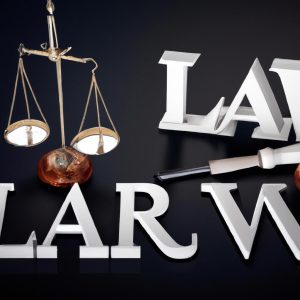What is a Will and What Should It Include in New York
Creating a last will and testament is crucial in ensuring that your assets and wishes are handled according to your desires after your passing. In New York, as in many other states, a will is a legally binding document that outlines how your estate should be distributed and other important instructions. At Morgan Legal Group in New York City, we understand the significance of wills, and in this guide, we’ll explore what a will is and what it should include to be valid under New York law.
Understanding a Last Will and Testament
A last will and testament, commonly known as a will, is a legal document that allows you to specify how your assets, property, and personal belongings should be distributed upon your death. It serves several essential functions:
- Appoints an executor: A will typically designates a trusted individual as the executor responsible for carrying out the instructions in the will.
- Distributes assets: It outlines who should inherit your property, financial assets, and personal belongings.
- Names guardians: If you have minor children, a will can specify who should become their legal guardian if both parents pass away.
- Expresses final wishes: You can use a will to convey your final wishes, such as funeral arrangements and organ donation preferences.
The Importance of Having a Will
Creating a will is essential for several reasons:
1. Asset Distribution
A will allows you to control how your assets are distributed, ensuring that your loved ones receive their intended inheritances.
2. Avoiding Intestacy
Without a will, your estate may be subject to intestacy laws, which could result in an unintended distribution of your assets.
3. Nominating Guardians
If you have minor children, a will lets you nominate a guardian who will care for them if you and the other parent are no longer around.
4. Reducing Family Disputes
A clear and legally binding will help prevent disputes and conflicts among family members.
What Should a Will Include in New York?
For a will to be legally valid in New York, it must meet specific requirements and include essential elements:
1. Testamentary Capacity
You must have the mental capacity to create a will. This means understanding the nature and extent of your property and knowing who your natural heirs are.
2. Intent
It must be clear that you intend the document to be your will and you’re not acting under duress or undue influence from others.
3. Proper Execution
New York law requires that the will be in writing, signed by the testator (you), and witnessed by at least two individuals who also sign the will.
4. Executor Appointment
Your will should name an executor responsible for managing your estate and ensuring your wishes are carried out.
5. Asset Distribution
The core of your will should specify how your assets and property should be distributed among your beneficiaries. You can name specific individuals, charities, or other entities as beneficiaries.
6. Guardianship Designation
If you have minor children, your will should designate a guardian who will have legal custody and responsibility for them in the event of your passing.
7. Special Bequests
If you have specific items or sentimental belongings that you want to leave to particular individuals, you can include these bequests in your will.
8. Residuary Clause
A residuary clause addresses any assets not specifically mentioned in your will, ensuring they are distributed according to your wishes.
9. Witnesses
Two competent witnesses must sign your will, affirming that they observed you signing it and that you appeared to be of sound mind.
Seek Professional Guidance
While creating a basic will on your own is possible, seeking legal assistance is advisable to ensure that your will is valid, comprehensive, and tailored to your specific needs. At Morgan Legal Group, our experienced attorneys can provide expert guidance on will preparation, ensuring that your final wishes are documented correctly and legally.
Don’t leave the distribution of your assets and the well-being of your loved ones to chance. Contact Morgan Legal Group today to discuss your will and estate planning needs.












